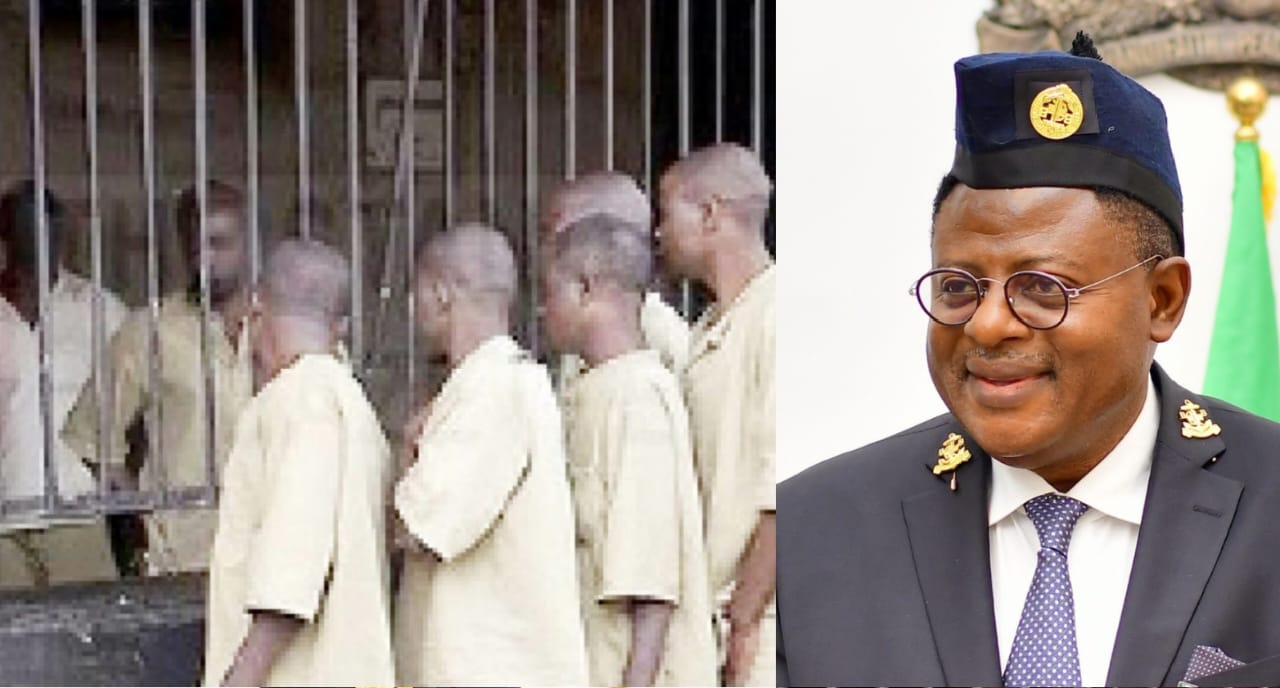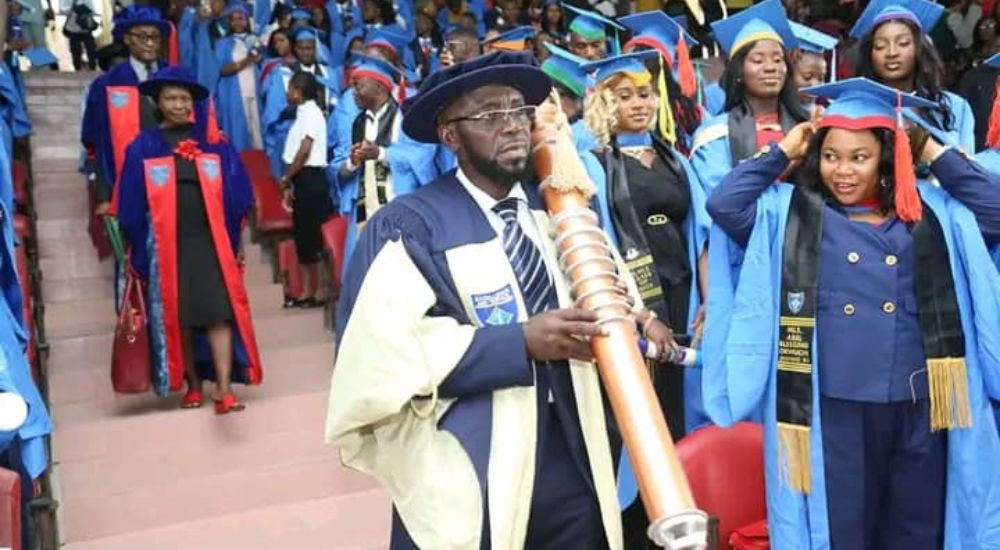By Asuquo Cletus
Calabar, Nigeria – The Deputy Speaker of the House of Representatives, Rt. Hon. Benjamin Kalu, has called for an overhaul to outdated curriculums in Nigerian Universities.
Kalu lamented that with the use of AI (Artificial Intelligence), most Nigerian courses are becoming obsolete and cannot be linked to problem-solving in line with modern realities.
The Deputy Speaker, who appeared as guest convocation lecturer, made the call on Thursday in Calabar while delivering his convocation lecture to mark the 37th convocation and 50th anniversary of the University Of Calabar (UNICAL).
He noted that with the growing trend of fake news and the evolving of social media, there is a need for university lecturers to properly guide their students on when, how and why information should be shared.
The lawmaker decried that Nigerian Universities must rise up to its challenges and prioritise the introduction of tech skills such as cybersecurity, artificial intelligence, and data analysis.
Kalu called on impactful learning on the path of University lecturers to students whom he described as future leaders who would shape the country’s policies, decisions, and laws in years ahead.
He said, “Years ago, I sat on the other side of the window of the room, absorbing the wisdom, knowledge and training that shaped me.
“The challenge beyond us is clear, our universities must go beyond theory to practical impact, bringing the gown into the town and now into cyberspace where knowledge is applied.
“The idea is to ignite change, outdated teaching methods fail to empower students for future challenges. The true major of education is its true impact on the town. How many university projects directly tackle local challenges like healthcare, water access, food security or transportation?
“If universities do not first serve their own communities, their achievements risk being confined to ivory towers.
“Our research should move away from theories and offer tangible solutions while graduates must be equipped to address real issues from policy refinements to policy transportation.
“If the town does not feel the impact of our gown, our education is incomplete. Our universities are more than centres of learning, they are the backbone of our community and nations.
“Their value lies not in certificates but in real-world impacts. Institutions must go beyond academic debates, producing results that shape research proactively rather than reacting to crises.
“They should serve as policy hubs, not just locally but internationally, proving that when education meets innovations, solutions must follow; after all, it was Sir Ken Robertson who emphasised the importance of creativity in education.
“Creativity is as important in education as literacy, we should treat it with the same standards. It is time for our curriculum to move from theory; agriculture students must master drone mapping for breeze control, and medical schools should introduce early medicine and AI.
“Law faculties must adopt blockchains; engineering students should embrace robotics – when the gown mirrors the town’s needs, productivity follows – when we bridge the gap between academia and society, universities can drive national progress while contributing to global knowledge.
“Education should not be a privilege, it should be a birthright – the inheritance of every child – no matter their circumstances.
“University should foster public-private partnership, inclusive learning models. The university should equip students with the digital economy; this will enable them to produce graduates who do not seek jobs but create them.
“Universities should stop teaching students courses and curricula that cannot transform them into problem solvers. There is so much emphasis on CGPA; it is not based on GPA; it is based on problem-solving.
“We must translate theories into problem-solving; we should leverage technology and reform our curriculum.”
Echoing similar sentiment, the Chairman of the Convocation, Prof. Eka Braide, highlighted the need for universities to key more into research.
She disclosed that the university has three mandates: to teach, refine the minds and produce. Prof. Braide called on the university to continuously strive to instil morals, values and good principles in the hearts of students.
She added, “We must continually imbibe the spirit of learning in our students and help them to see reasons why education is the fountain and bedrock of a good society.”
The Vice Chancellor of the University, Prof. Florence Obi, disclosed that since its inception, the university has graduated hundreds of thousands of students who had distinguished themselves across various fields.
Prof. Obi urged attendees to continuously support the University as “UNICAL is positioning itself towards the global map.”
The lecture was also attended by Senate President Godswill Akpabio, Cross River State Acting Governor Peter Odey, Secretary to the Cross River State Government (SSG) Prof. Anthony Owan-Enoh, Senator Asuquo Ekpenyong, and Senator Eteng Jonah Williams.
Others include Pro-Chancellor of the University of Calabar and Emir of Kano, Aminu Ado Bayero; Former Minister of Humanitarian Affairs, Dr Betta Edu; and other senior government officials.
Highlights of the evenwerewas a presentation of awards to exceptional alumni of the University of Calabar, spoken words, aa nd music presentation.








